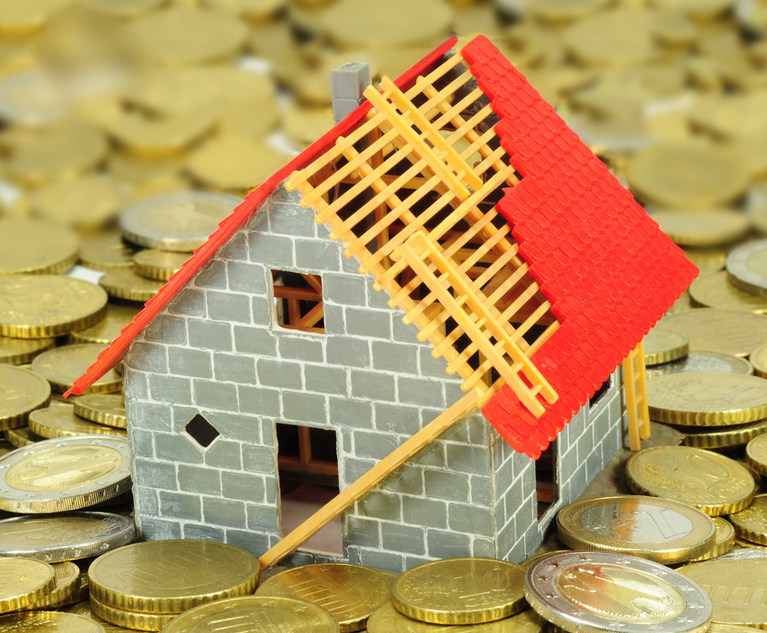Editor's note: This article first appeared on Insurance.comand is reprinted here with their permission. Click here for the original post.
|The home of your dreams may be a nightmare to insure if it'sbuilt in a disaster-prone area, is above a certain age or has acheckered claims history.
|It doesn't necessarily mean you can't find homeowners insurance anywhere, but you may end uppaying a steep price for it.
|“Many times you can't find (a price) you're willing to pay,”says Lynne McChristian, Florida representative of the Insurance Information Institute (III).
|While the average homeowners insurance premium was $978 in 2011,if you lived in Florida you paid a whopping $1,933, according tothe National Association of Insurance Commissioners. Residents offour other states—Louisiana, Texas, Mississippi and Oklahoma—paidmore than $1,300 on average. At the other extreme, Idaho residentsgot a bargain, paying just $518.
|Most people buy homeowners insurance on the standard market, butmillions of homeowners around the country are forced to buy theirinsurance on the residual market, which is sponsored by each stateand provides coverage when it's not available through traditionalprivate homeowners insurance companies.
|About 7% of homeowners file a claim each year, says the III,with wind and hail claims the most frequent and fire claims themost expensive.
|If you own one of these hard-to-insure homes, you may have todig deep into your pocket to get the insurance coverage youneed.
||
(Photo: Leonard Zhukovsky / Shutterstock.com)
|1. Homes in disaster-prone areas
|Each year the United States gets hit with dozens of disasters,from hurricanes to earthquakes to tornadoes to wildfires.
|And while you probably adore your beachfront home or secludednature retreat, because of the risks tied to the location, you'reprobably paying big bucks for homeowners insurance.
|But you can take steps to decrease those risks. If you live inarea that's prone to wildfires, you can clear brush from aroundyour home or make sure your roof is made from non-combustiblematerials.
|If you live in a hurricane-prone area, you might want to addhurricane shutters or install straps to secure your roof to yourhome.
|“The standard market will be more likely to insure you if you'vetaken certain appropriate measures to mitigate the likelihood ofwind damage,” says Chris Hackett, director of personal lines policyfor the Property Casualty Insurers Association of America.
|The InsuranceInstitute for Business & Home Safety has informationon its website on how to protect your home from various types ofdisasters.
||
(Photo: Shutterstock)
|2. Older homes
|You love the charm of your 1920s bungalow or Victorian-era home,but the age and style make them harder to insure.
|Interesting architectural features can make older homes unique,but they also can make them more costly to repair, McChristiansays.
|Insurers also are likely to shy away from insuring your home ifthe electrical system and plumbing haven't been updated or the roofhasn't been replaced.
|“If a consumer owns an older home, insurers will be interestedin learning about any upgrades, remodeling and updates that mayhave occurred over the years,” says Mario Menesse, head of home andumbrella insurance for Farmers Insurance.
|It helps if you can provide your insurer with blueprints,receipts, photographs and other documentation to show theremodeling and upgrades that you've made, Menesse says.
||
(Photo: Shutterstock)
|3. Vacation homes
|Your vacation home may be your own personal retreat, but becauseit's unoccupied much of the year, it can be a challenge toinsure.
|Because you probably only visit your vacation home or secondhome for a few weeks or months each year, a problem such as a waterleak can go undetected and cause major damage while you're away,Menesse says.
|It also can become a magnet for thieves. “Homes that are knownto be unoccupied for a period of time could catch the attention ofunscrupulous individuals, who may view the home as an attractivetarget,” he says.
|He recommends installing a burglar and fire alarm to helpdecrease your risks, and asking neighbors to help keep an eye onyour property.
||
(Photo: Shutterstock)
|4. Homes with a trampoline or pool
|Having a swimming pool or trampoline might make for goodsummertime fun, but your homeowners insurance company may see themas an “attractive nuisance” that can tempt children to come intoyour yard when you're not home, Hackett says.
|You also run the risk of someone being injured on yourtrampoline or hurt or killed in your pool, and you could besued.
|Some insurers may refuse to insure your home if it has a pool ortrampoline, or charge you higher rates.
|Putting a locked fence around your pool and having a net aroundyour trampoline could help reduce risks.
||
(Photo: Shutterstock)
|5. Homes with certain pets
|Americans love their dogs, sharing their roofs with more than 56million of them in 2013.
|Certain breeds can be expensive, not in terms of what you payfor them, but in terms of insurance liability.
|Last year there were more than 17,000 dog-bite claims, accordingto the III and State Farm, with payouts surpassing $483 million.The average claim paid out $29,396, III says.
|You may find your insurer will set limits on the amount it willpay for a dog-bite liability claim, with you having to pay the restout of pocket, or even deny you coverage if you own certain breeds,such as a pit bull. In some cases you can only get coverage if youtake your dog to obedience classes or make sure he'srestrained.
||
(Photo: Shutterstock)
|6. Vacant homes
|You've gotten a great deal on a vacant foreclosed home, butinsuring it could cost you.
|You'll need to have a home inspection to determine the extent ofthe problems—and the length of time the home might need to remainvacant while it's undergoing repairs.
|Homes that have been vacant for long periods of time deterioratefaster than those that are occupied. And they can draw unwantedattention from bad guys.
|“All kinds of things could go wrong if no one is minding theproperty,” McChristian says.
|Even a major remodeling project on your current home—regardlessof whether you need to move out or not – can cause additionalinsurance concerns, such as liability and workers compensationinsurance, Menesse says.
|Farmers, for example, offers coverage to protect you fromvandalism and coverage for certain perils, such as fire or winddamage, if your home is unoccupied.
||
(Photo: Shutterstock)
|7. Homes with a lengthy claims history
|It may not even be your fault, but owning a home with a lengthyclaims history can drive up your rates.
|You can purchase a C.L.U.E. (Comprehensive Loss UnderwritingExchange) Home Seller's Disclosure Report, which hasinformation on the insurance claims filed at the home over the pastfive years.
|A history of multiple claims could indicate major maintenanceproblems with the home, McChristian says.
|Keep reading to learn what you can do when are having a hardtime finding homeowners insurance.
||
(Photo: Shutterstock)
|When you can't find homeowners insurance
|When all else fails and you can't find insurance with a privatecompany, you can look to the residual market.
|In fiscal year 2013, these policies covered about 3.2 millionhomes, with a value of $639 billion, according to the III.
|Most states have Fair Access to Insurance (FAIR) Plans, fivecoastal Southern states have Beach and Windstorm Plans, and Floridaand Louisiana have state-run insurance companies.
|Florida had by far the most policies covered under these plans,with 1.4 million, followed by Texas, with more than 400,000policies, and North Carolina, with almost 400,000.
|Additional information:
|Homeowner, condo and renters insurance: 5 things toknow
||Want to continue reading?
Become a Free PropertyCasualty360 Digital Reader
Your access to unlimited PropertyCasualty360 content isn’t changing.
Once you are an ALM digital member, you’ll receive:
- All PropertyCasualty360.com news coverage, best practices, and in-depth analysis.
- Educational webcasts, resources from industry leaders, and informative newsletters.
- Other award-winning websites including BenefitsPRO.com and ThinkAdvisor.com.
Already have an account? Sign In
© 2024 ALM Global, LLC, All Rights Reserved. Request academic re-use from www.copyright.com. All other uses, submit a request to [email protected]. For more information visit Asset & Logo Licensing.








